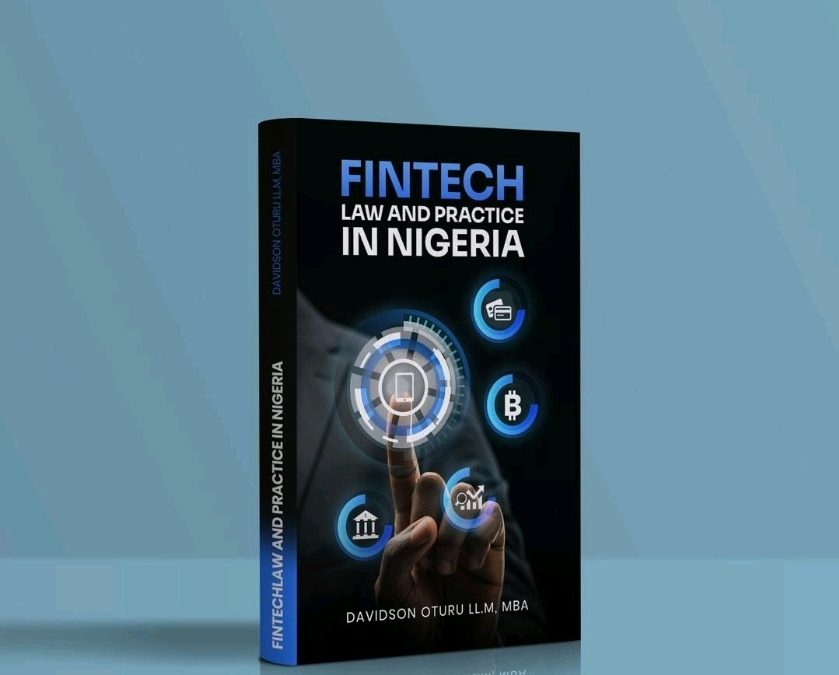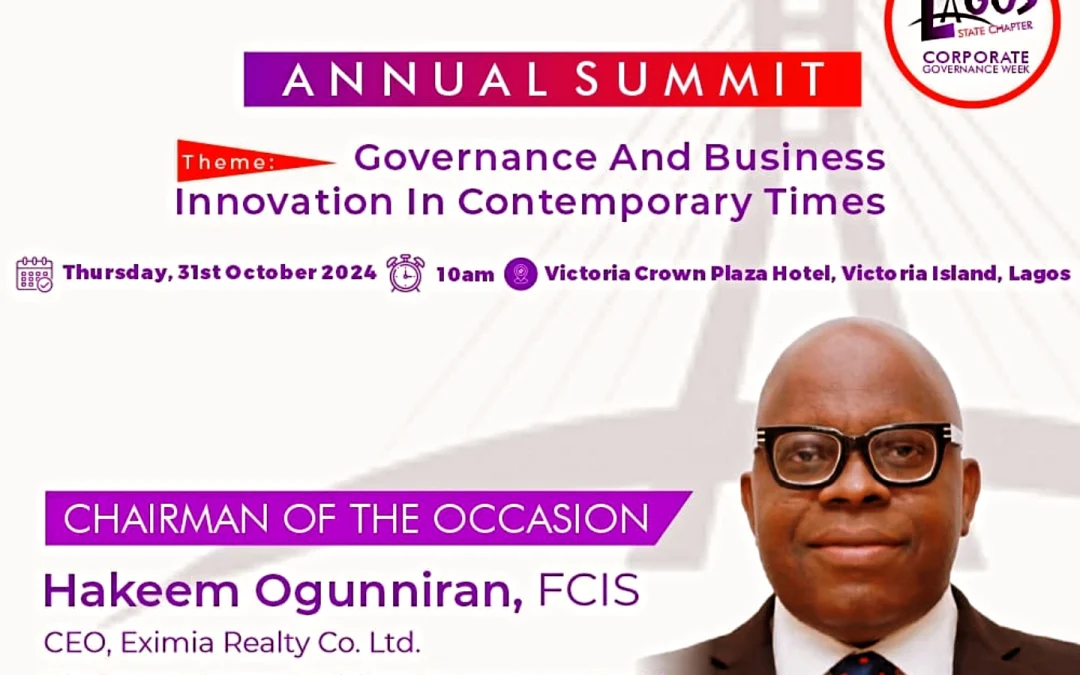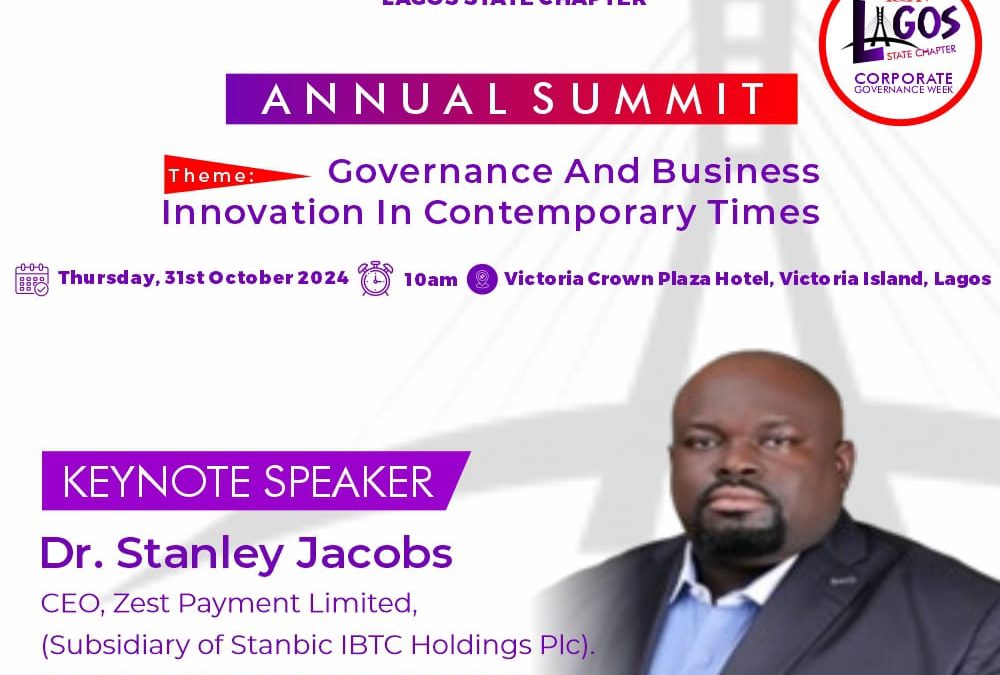
by Legalnaija | Nov 14, 2024 | Blawg
The avoidable privacy breach in Dr Abalaka’s defamation judgment and the urgent need to regulate law reporting in Nigeria
By Olumide Babalola
My research on the overlap between privacy and defamation led me to the Supreme Court’s judgment in Dr Jeremiah Abalaka v Prof. Ibironke Akinsete (2023) LPELR-60349(SC) where the following statement is published in the law report: “The Appellant claimed that he has found a vaccine to cure HIV/AIDS. The 3rd Respondent, a retired soldier living with HIV used the said vaccine and according to him, he is still HIV positive. The 3rd Respondent also gave the statistics of 30 soldiers who have used the vaccine and some according to him, are dead while others are still living with HIV.”
As it is the unchallenged practice of law reporters in Nigeria to publish verbatim judgments, reading through the judgment, the unmasked identity of the party living with HIV is revealed in the judgment reported by law reports. As a privacy professional, this got me thinking and I share my thoughts in the following brief paragraphs:
a. There are no visible regulators or regulations on law reporting in Nigeria
In her article published in 1972 by the Journal of Legal Pluralism and Unofficial Law, Jill Cottrell Ghai– a former law lecturer at the Ahmadu Bello University, Zaria – traces the history of law reporting in Nigeria to 1915 when the Government Printer in Lagos published the first edition of the (now abandoned or relegated) Nigeria Law Reports. Over 109 years after the debut, my research has been unable to lead me to any regulation, policy, guideline or other legislation of law reporting in Nigeria.
While it is “known” that the Supreme Court issues licences or permits for law reporting, I could not find the legislation upon which these authorizations are issued vis a vis the rules of engagement. If this piece of legislation exists, then it is not publicly accessible, making it impossible for the public to hold law reports to any standards.
b. Court judgments and privacy
Yes, court judgments are public documents, but they are not inimical to the notion of privacy. Otherwise, there would not be statutory and procedural provisions excluding the public from some court proceedings – the definition of which includes court processes and judgments. (see Ezeudu v Adeka (2016) LPELR-40807(CA). For context, while section 36(4)(a) of the 1999 Constitution empowers the court to exclude the public from certain proceedings where the private lives of parties will be prejudiced, section 12 of the Freedom of Information Act allows non-disclosure of information in a public record where disclosure will infringe on the data subject’s privacy. Interestingly, the Matrimonial Causes Act empowers the courts to restrict the publication of parties’ personal information in deserving cases. Neither our courts nor the law reports have taken full advantage of these provisions.
c. Unfair reporting and data minimization
Law reporters are largely unregulated in Nigeria but as data controllers who particularly process sensitive personal data, they are subject to the provisions of the Nigeria Data Protection Act 2023 (NDPA). By section 24(1)(a), law reporting companies are meant to be fair in their handling of personal data especially as reflected in the judgments they publish. Fairness, in data protection parlance, contemplates respecting the (privacy) rights of the data subject. By this principle, data processing must be carried out in a way that does not harm or disadvantage the data subject. This includes ensuring that the data subject’s dignity, privacy, and reputation are protected during and after the data processing. The question is – does publishing a party’s identity or HIV status, as done in Abalaka’s case preserve the dignity of such party?
Additionally, section 24(1)(c) NDPA mandates controllers to process only the minimum personal data necessary for the purpose of collection. This principle is know as ‘data minimization’ designed to protect individuals’ privacy by ensuring that only the minimum amount of personal data necessary for a specific purpose is collected, processed, and retained.
Data minimization requires that only the personal data that is absolutely necessary to achieve a specific purpose should be collected. Any data that is not needed for the defined purpose should not be collected or stored. In reporting judgments, some highly sensitive personal data ought not be published in the report. In Abalaka’s case, the 3rd Respondent’s identity need not be revealed in the law report, this is not necessary for the purpose of reporting a case on defamation. Non-disclosure of his identity will not diminish the report especially since other parties are identified.
d. International best practices
Keeping up with their aspirations to deliver world-class law reporting services, then Nigerian law reports must regulated to maintain such standards. Currently, there is no official regulator/regulation for law reporting in Nigeria. In the UK, they have Judicial Proceedings (Regulation of Reports) Act 1926; the Incorporated Council of Law Reporting for England and Wales (ICLR) regulates law reporting together with the courts which issue practice direction for the publication of judgments e.g Practice Guidance: Anonymisation And Avoidance Of The Identification Of Children; Reporting Restrictions in the Criminal Courts; Transparency In The Family Courts. Publication Of Judgments Practice Guidance etc.
In South Africa, while some cases are filed with anonymised names, some judgments are published with anonymized names for privacy reasons. Cases bordering ion divorce, sexual violence, custody and maintenance of children are routinely filed by masking the parties’ identities and such identities are also concealed in the law reports. In Kenya, the National Council for Law Reporting anonymization guidelines for judgment publications. See Tumaz and Tumaz Enterprises Limited v National Council for Law Reporting
[2022] KEHC 14747 (KLR). Nigeria, is long over due for a regulator and regulations in this regard.
Recommendations
The publication of court judgments, often referred to as law reporting, is a critical aspect of legal transparency and the development of jurisprudence. However, in Nigeria, the current approach to law reporting lacks a regulatory framework that ensures the protection of personal data, privacy, and the ethical publication of sensitive information. Given the increasing importance of data protection globally, as well as the growing focus on privacy and fairness, it is essential to align Nigeria’s law reporting practices with international best practices in data protection, privacy, and transparency. From a privacy perspective, these are my humble suggestions:
a. Data Protection Standards in Law Reporting
To ensure fairness of pdata processing, all published/reported judgments ought to adhere to data protection principles by employing data security techniques like pseudonymization or redaction of sensitive personal data, in line with global standards and as required by the NDPA (see section 39). Law reporting entities must implement measures to prevent unauthorized disclosure of personal data, particularly in sensitive cases in their published judgments (e.g., family law, sexual offenses).
b. Establish Clear Guidelines for Publishing Judgments
It is advisable that the Supreme Court (the unofficial regulator) develops workable and enforced guidelines for the publication of court judgments that mandate the protection of personal data and ensure transparency regarding the processing of such data. Such documents should provide practical guidance procedures for redaction or pseudonymization to safeguard individuals’ privacy, especially when personal identifiers are not necessary for legal clarity.
c. Introduce a Regulatory Framework for Law Reporting
The establishment of a regulatory agency, body or department for law reporting is long overdue. The Federal Ministry of Justice can collaborate with the Supreme Court on this initiative to establish a regulatory body or framework that oversees the practice of law reporting, ensuring that published judgments comply with data protection, privacy laws and other standards. Such regulatory body should collaborate with data protection authorities to ensure that law reporting practices align with broader privacy regulations.
d. Anonymization and Redaction
The publication of court judgments, especially those involving sensitive personal data, should be anonymized or redacted to protect the privacy of individuals involved, in line with data minimization and privacy principles. Legal practitioners and publishers of law reports should be required to redact personal identifiers, including full names, addresses, contact details, and any other sensitive information, unless disclosure is essential for the understanding of the judgment. Pseudonyms should be used where applicable.
e. Promote Ethical and Fair Law Reporting Practices
Courts and legal publishers must take into consideration the ethical implications of publishing sensitive personal data in judgments. Failure to protect individuals’ privacy can lead to significant harm and contravene the fairness principle in data protection. Law reporting practices should align with ethical guidelines to ensure that the publication of judgments is fair and does not unjustly expose individuals to harm, including social stigma, reputational damage, or physical risk. The judiciary system should adopt ethical guidelines in line with best practices that require the careful consideration of the public interest, privacy, and fairness when publishing court judgments.

by Legalnaija | Nov 13, 2024 | Blawg

Legalnaija November Dash: Black Friday Sales Begin on November 29, 2024!
We are thrilled to announce the Legalnaija November Dash – our special Black Friday event starting on November 29, 2024! This is the perfect opportunity for lawyers, law students, and customers to take advantage of incredible discounts on a wide range of legal resources and services.
At Legalnaija, we’re dedicated to providing top-notch legal materials and support to help you succeed in your professional journey. During our November Dash, you can look forward to:
– **Exclusive Discounts**: Enjoy significant price reductions on our legal guides, textbooks, and online courses.
– **Special Offers**: Access limited-time deals on our services.
– **Giveaways**: Enter our exciting giveaways for a chance to win valuable prizes.
And with the holiday season just around the corner, it’s also the perfect time to gift the lawyers in your life something special. Our Black Friday sales make it easier than ever to find the ideal gift for those who tirelessly advocate for justice.
Whether you’re a seasoned attorney or an aspiring law student, our Black Friday sales event offers something for everyone. Don’t miss out on this opportunity to enhance your legal knowledge and skills at unbeatable prices.
Mark your calendars and get ready for the Legalnaija November Dash! Visit Legalnaija’s bookstore https://legalnaija.com/store on November 29, 2024, to start shopping and take advantage of these fantastic offers.
We can’t wait to celebrate with you!
Best regards,
Lara!

by Legalnaija | Nov 5, 2024 | Blawg
Sex Tapes From the Equatoguinean Anti-Corruption Czar: Another Reminder that Our Lives and Wellbeing Are Connected to Privacy?
| Olumide Babalol
Yesterday, an Equatoguinean official – Baltasar Engonga – broke the Internet for many reasons. First, he reportedly had sexual affairs with over 300 women and secondly, in a somewhat inexplicable discovery, he recorded these escapades. Then, the World was stunned when these intimate videos were leaked to the public. Expectedly, these bizarre turns of events have been discussed from many standpoints: from male chauvinism and ego trips to gender guilt-tripping and then the moralistic condemnations and then the biased blame games, not leaving out the legalistic grandstanding. Regardless of the aptitude or otherwise of these views, these sour revelations present another opportunity to preach a higher value for privacy lest the lessons in its neglect may be lost on us all.
1. Recorded private moments are susceptible to privacy breaches
A person’s decision to record his intimate moments with another consenting adult is definitely within the confines of their privacy rights, but such an exercise of rights also comes with enormous risks of privacy breach. Where one of the parties is disgruntled, they have a ready-made tool for revenge porn; where a third party gains access, it becomes a potential bait for blackmail or extortion. What about hackers and other kinds of illegal or official intruders who are backed by law to search and seize assets as in Engonga’s case?. Hence, anyone who records sex tape should bear in mind the consequences of privacy breaches which are mostly intrusive, damning and destructive.
2. Privacy clothes dignity, once privacy is invaded, dignity is exposed
Historically, the right to privacy was conceived to protect the dignity of human interactions. Warren and Brandeis – fondly referred to as the “fathers of privacy” advocated for the right to privacy in their famous 1890 Harvard Law Review Article titled the ‘Right to Privacy’ by briefly locating dignity in their argument for the protection of privacy thus:
“It remains to consider what are the limitations of this right to privacy and what remedies may be granted for the enforcement of the right. To determine in advance of experience the exact line at which the dignity and convenience of the individual must yield to the demands of public welfare or of private justice would be a difficult task.”
Without going too theoretical, privacy undoubtedly covers the dignity of whatever vices idiosyncrasies or habits humans indulge in within their private confines. For context, the Yorubas would say “Ile eni la ti nje ekute onidodo” meaning, it is in the privacy of one’s home that one eats rats with navel.” I made this argument in a paper co-delivered at the University of Oxford titled ‘Translating universal rights into local practices: Privacy, technology, and postcoloniality in Nigeria’s legal regime for data governance’ in 2023, that irrespective of the omission of the right to privacy in the African Charter, provision on the right to dignity in the instrument potentially makes up for the error since privacy also serves the ends of dignity.
In Engonga and his co-travellers’ case, the public exposure of their ‘private’ videos have arguably stripped them of the measure of dignity they once enjoyed. The once respected anti-corruption czar is now a subject of ridicule, insults, abuses and worst of all, undignifying digital footprints, social media memes and gifs which may not leave the Internet for a very long time. He has been called many unprinted and undignifying names and is even now subject to prosecution. His dignity has suffered a huge blow from which he may never recover – all these because his privacy was invaded by the persons who gained access to his intimate moments on tape.
3. Privacy often transcends personal rights
Even though privacy is often discussed from an individualistic perspective in the West, it is practically communal in Africa. The effect of privacy violations usually touches the victims’ relatives and acquaintances in more measure. In Engonga’s case, even though it was his house that was searched but the effects of the revelations are even more damaging to the other supporting characters in the scenes than the main actor. His nuclear and perhaps, extended family are not also spared from the embarrassment of the incident. For context, the Nigerian Constitution describes privacy as the “right to private and family life”, hence where privacy is invaded, family life (encompassing other members of the victim’s family) are also impacted. The husbands and children of the other women involved in the series of sex scenes are also as embarrassed and scandalised as the actors of the scenes.
4. Privacy and (right to) life
Barely 24 hours after the leak, one of the women involved reportedly committed suicide as a result of shock or shame from the revealing videos. I have once argued in many fora that privacy is intrinsically linked to livelihood. Hence, where privacy is invaded, its effect may prejudice the victim’s right to life.
My Lord, Agim JCA (now JSC) had once pronounced in Paul Ojoma v. State (2014) LPELR–2294(CA) and Chika Enyinnaya v. The State (2014) LPELR–22924(CA) that: “Privacy at its most fundamental level is the right to be left alone. This suggests that a zone surrounds every individual within which he or she should be protected from intrusion by others. It is the most valuable of all rights.”
Probably, the deceased could not see any other reason to be alive upon the damaging publication of her very intimate secrets, hence her right to life succumbed to the invasion of her privacy. A similar scenario has played out in other climes where victims of privacy invasion committed suicide while groaning under the effect of the damaging nature of the intrusion.
One of the interests protected by privacy is the publication of embarrassing private facts and this is recognised under Nigerian law. Happily, we were able to move the High Court of Lagos State to recognise this interest in Suit No. LD/14893MFHR/2023 between Adewale and Timothy where Sule-Amzat, J. held that: “The right to privacy is one of the fundamental rights of an individual guaranteed under the 1999 Constitution of the Federal Republic of Nigeria. The right to privacy protects an individual from the invasion of his/her privacy by anyone, it protects an individual from the public disclosure of embarrassing facts and it prevents the appropriation of an individual’s name or likeness for commercial use.”
Conclusion
The release of private sex videos, particularly without consent, underscores the profound impact that violations of privacy can have on individuals’ dignity, mental well-being, and even their right to life. The tragic outcome in this case, where one of the women involved took her own life, highlights the extreme consequences of such breaches of privacy. These events reveal how recorded deeply personal moments, when shared, can devastate an individual’s sense of self-worth, security, and humanity.

by Legalnaija | Nov 2, 2024 | Blawg
Juvenile #EndBadGovernance# Protesters, Data Accuracy and the Consequences of a Weak Data Protection Framework | By Olumide Babalola
Introduction
On the 1st day of November 2024, the Nigerian social media space was greeted with sympathy-drawing, emotion-laden still and motion images of some Nigeria children (irrespective of their ages, they are still children to their parents) arraigned before the Federal High Court after about 80 days in detention. When one of them slumped from alleged symptoms of malnourishment and hunger, his age and competence to face trial became an issue so much that a leading counsel in the prosecution team openly declared that the defendants are not minors and that most of them are already married with children.
The extrajudicial vituperations from the public and counter-assertions from the prosecution raise a data protection issue around the accuracy of personal data – the defendants’ accurate ages as well as the prosecution’s statutory obligation as a data controller. I will briefly discuss this in the successive paragraphs but it must be quickly reiterated that criminal prosecutions are not wholly exempted from the coverage of the Nigeria Data Protection Act, 2023. For clarity, the exemption does not obliterate law enforcement agencies’ obligation to comply with principles of data protection (see section 3(2)(a) NDPA which clearly “excludes” principles from the exemptions.
Data accuracy in the context of the prosecution’s position
Accuracy – a cardinal principle of data protection imposes a duty on data controllers to ensure that personal data they process (i.e collect, use, store, share etc) are accurate and kept up to date. The Nigeria Data Protection Act 2023 (NDPA) specifically requests that such data must not be misleading (see section 24(1)(e). In the case at hand, the police and prosecution are the data controllers who are mandated to ensure that the defendants’ personal data collected and used for their prosecution are accurate and not misleading.
The prosecution team announced to the entire world that the defendants are not minors but a look at the charge sheet says otherwise. For the avoidance of doubt, on the charge sheet with number FHC/ABJ/CR/503/2024, Umar Musa is 15; Muhammadu Mustapha 16; Ibrahim Rabiu 16; Muhammed Musa 14 etc. Since these are the recorded ages of some of the defendants, then the prosecution’s position is misleading since these are still minors under Nigerian law.
Verification of Children’s data
Going by the recorded ages on the charge sheet, some of these defendants are still minors while others are not thereby raising another data protection query – How did the Police ascertain their ages? The NDPA mandates controllers to be circumspect when processing children’s data. The law requires controllers to apply appropriate mechanism to verify the ages of children before processing their data. (See section 31(2).
In the decision in Emen Akpan v The State (1999) LPELR (CA), the Court of Appeal reiterated the methods of verifying a defendant’s age including: birth certificate or other direct evidence as to the date of birth, and in the absence of such evidence, a certificate signed by a medical officer in the service of the Government giving his opinion as to such age. In this case, the prosecution has curiously fixed the ages of the children without any identifiable mechanism for verifying their ages – this comes with a barrage of privacy and data protection consequences.
Consequence of inaccurate data
The prosecution’s careless and somewhat erroneous arrogation of inaccurate ages to the defendants has many legal implications touching on the latter’s rights, freedom, mode of trial, safeguards and other entitlements. For the sake of argument, assuming the ages of all defendants are rightly recorded as minors, then the choice of court ought to be different i.e they should all have been charged at the juvenile court. Perhaps, they would not also have been remanded in the regular prisons. Ultimately, they would not also be subjected to full trial of the offence alleged.
In conclusion, the failure of the police to verify the ages of children arraigned in court underscores a critical gap in Nigeria’s data protection framework. This lapse can be directly linked to the systemic issues plaguing the Nigeria Data Protection Commission, including inadequate funding, the prolonged omission to appoint governing council members, and the lack of harmonization among the various data registries in the country. These deficiencies not only hinder the effective enforcement of data protection laws but also compromise the rights and welfare of vulnerable populations, particularly children. To address these challenges, it is imperative for the government to prioritize the funding and operationalization of the data protection regulator, ensuring that it can independently and effectively oversee compliance and promote a culture of accountability in data management practices. Without these foundational steps, the integrity of the judicial process and the protection of citizens’ rights remain at significant risk.

by Legalnaija | Oct 12, 2024 | Blawg

Book on Fintech Law and Practice in Nigeria Launches with Roundtable Discussion at University of Aberdee
The University of Aberdeen is set to host the launch of Fintech Law and Practice in Nigeria, a pioneering work by author Davidson Oturu, on October 30th, 2024. The event will take place at the Centre for Commercial Law and will feature a roundtable discussion titled “Shaping the Future: Roundtable on Fintech and Digital Markets in Africa,” running from 12:30 PM to 2:00 PM GMT.
The roundtable will examine the transformative role of fintech and digital markets in reshaping Africa’s economic landscape. As digital financial services rapidly expand globally, Africa is positioning itself as a leader in fintech innovation. However, significant challenges remain in regulation, cross-border trade, digital inclusion, and market access.
This discussion will highlight how regional trade agreements like the African Continental Free Trade Area (AfCFTA) are fostering a more integrated digital economy. It will also explore fintech’s potential to drive economic development, enhance financial access, and stimulate innovation within African markets.
The panel of experts includes:
• Dr. Ify Ogo, PhD – Regional Specialist on the AfCFTA at the United Nations Development Programme (UNDP)
• Davidson Oturu – General Partner at Nubia Capital and Author of Fintech Law and Practice in Nigeria
• Dr. Titilayo Adebola – Senior Lecturer at the University of Aberdeen and Director of the Centre for Commercial Law
This event is designed for legal practitioners, academics, entrepreneurs, and anyone with an interest in the evolving fintech landscape. Attendees will have the opportunity to engage with thought leaders and explore collaborative opportunities among stakeholders, including policymakers, entrepreneurs, and investors.

by Legalnaija | Oct 4, 2024 | Blawg

Davidson Oturu Launches Book On Fintech Law And Practice
Davidson Oturu, a legal practitioner and investor, is set to release his book, Fintech Law and Practice in Nigeria, a comprehensive legal guide that explores the rapidly evolving fintech industry in Nigeria. This essential resource provides key insights into the legal and regulatory landscape that governs the country’s thriving fintech sector.
Fintech Law and Practice in Nigeria addresses critical issues, including regulatory frameworks, compliance challenges, intellectual property concerns, and the impact of emerging technologies such as blockchain, cryptocurrencies, and AI on financial services. The book also features case studies, legal analysis, and practical advice for lawyers, entrepreneurs, and investors navigating this dynamic space.
Davidson Oturu, who has an extensive background in fintech and intellectual property, is renowned for his role in shaping the Nigeria Startup Act and other key regulatory initiatives. He was also part of the Securities and Exchange Commission Roadmap Committee that drafted a framework for the use of fintech in Nigeria’s capital market. With this book, Oturu offers a guide for stakeholders to understand the complexities of fintech law and seize opportunities in Nigeria’s fintech market, one of the fastest-growing sectors in Africa.
The book will be launched on October 30, 2024, at the Centre for Commercial Law, Global South Law Research Network, University of Aberdeen and there will also be a roundtable on the development of fintech on the African continent.
Speaking ahead of the launch, Oturu noted, “Fintech Law and Practice in Nigeria aims to provide a clear legal roadmap for entrepreneurs, investors, and legal professionals. The book is a result of my experiences and active participation in creating policies that facilitate innovation while safeguarding stakeholders in this fast-growing sector.”
The book launch at the University of Aberdeen is expected to draw legal scholars, industry leaders, and policymakers, offering an invaluable platform for discussions on the future of fintech regulation in emerging markets.

The book will be available for purchase on Amazon, Google Books, Barnes & Noble, and other bookstores locally and internationally.
Davidson Oturu was a partner at AELEX, where he led the firm’s fintech, technology and startup practice and has a passion for innovation in the tech space. He is presently a general partner at Nubia Capital, a venture capital firm, and played a pivotal role in drafting the Nigeria Startup Act. Oturu has been recognized in numerous legal directories, including Chambers Fintech Guide, Chambers Global, Legal 500, IFLR1000 and Who’s Who Legal.
Copies will be available on the Legalnaija bookstore www.legalnaija.com
#fintech #fintechlaw #newbookalert #fintechbook #davidsonoturu #legalnaija

by Legalnaija | Oct 4, 2024 | Blawg
We are excited to introduce Mr. Hakeem Ogunniran as the Chairman of our ICSAN Lagos State Chapter Annual Summit 2024!
He is the Founder and CEO of Eximia Realty Co Ltd and Non-Executive Chairman of Lagos Building Investment Co. Plc and brings a wealth of expertise in corporate governance and leadership. With board roles at Reall U.K. and a track record of success at UACN Property Development Co. Plc, where he was named one of the top 20 CEOs on the Nigerian Stock Exchange in 2013, he is a true industry leader.
He has a law degree from the University of Lagos, an LL.M, an MBA, and prestigious executive training from Harvard and London Business Schools. Mr. Ogunniran has garnered accolades like the Kwame Nkrumah Award for Corporate Governance Excellence.
Mr. Ogunniran’s extensive experience, insights and leadership will undoubtedly guide impactful discussions on best practices and governance strategies.
Event Details:
Registration Rates:
Early Bird (ends Tuesday 8 October 2024):
– Members: N30,000
– Non-Members: N35,000
Regular:
– Members: N40,000
– Non-Members: N45,000
Payment Details:
Access Bank
Account Number: 0016319840
Account Name: ICSAN Lagos State Chapter
Upon payment, please register with this link and upload payment details;
https://lnkd.in/dWr9Z49z
#corporategoverance #summitchairman #icsanlagosstatechapter
#innovation #icsanlagossummit24 #leadership #industryexpert #icsanlagoscgweek24 #ICSANLagosCGWeek24 #cgweek24

by Legalnaija | Oct 3, 2024 | Blawg
We are thrilled to present our Keynote Speaker for the ICSAN Lagos State Chapter Annual Summit 2024!
Dr Stanley is the Chief Executive Officer of Zest (formerly Stanbic IBTC Financial Services Limited), a fintech arm of Stanbic IBTC Holdings PLC. As a trailblazer in the financial technology industry, he serves as President of the Fintech Association of Nigeria (FINTECHNGR) and is a key member of several esteemed advisory councils and committees, including the Committee of e-Business Industry Heads of Nigeria (CeBIH) and the Chartered Institute of Bankers of Nigeria (CIBN).
Dr Stanley’s career is a tapestry of leadership roles across top-tier organizations such as Mastercard, Ecobank Group, and Standard Chartered Bank. Notably, he was the pioneering Chief Operating Officer of Fortis Mobile Money in Nigeria. With a Doctorate in Green Finance from UCAM, Spain, an MBA in Technology Management, and executive education from renowned institutions like the University of Oxford and MIT. Dr Stanley is a highly respected fellow and member of numerous professional bodies, including the Chartered Institute of Bankers of Nigeria and the Institute of Directors.
Event Details:
• Early Bird Registration (Ends Tuesday, October 8, 2024):
Members: N30,000
Non-Members: N35,000
• Regular Registration:
Members: N40,000
Non-Members: N45,000
Payment Details:
Access Bank
Account Number: 0016319840
Account Name: ICSAN Lagos State Chapter
Once payment is made, complete your registration by uploading your payment details through the link below: https://lnkd.in/dWr9Z49z
#corporategoverance #summitkeynotespeaker#icsanlagosstatechapter #keynotespeaker #innovation #icsanlagossummit24
#industryexpert #icsanlagoscgweek24 #ICSANLagosCGWeek24 #CGWeek24

by Legalnaija | Sep 23, 2024 | Blawg
Professor Olawuyi , SAN makes case for increased support for the media to drive sustainablity awarenes
Frontline international law expert and global vice chair of the International Law Association, Professor Damilola Olawuyi (SAN) has called for increased financial and technical support for media practitioners in Africa, so that they can effectively play their crucial roles of driving public discourse and awareness on all aspects of the United Nations Sustainable Development Goals (SDGs).
The Senior Advocate of Nigeria (SAN), who is also a UNESCO Chair on Environmental Law and Sustainable Development HBKU, made these remarks while delivering a compelling guest lecture at the Hiwar Scholars Seminar held at Northwestern University, in Doha, Qatar (NUQ). Themed “Climate and Sustainability Reporting in Africa: The Role of the Media”, the event brought together academics, students and stakeholders in media who converged under the aegis of NUQ’s Hiwar Speaker Series. The event featured opening remarks from Professor Zachary Wright, associate dean for faculty affairs at NUQ, while the session was moderated by the chairperson of the Africana studies minor at NUQ, Professor James Michael Hodapp. Also in attendance was Dean Susan L. Karamanian of the Hamad bin Khalifa University law college.
While emphasing the role of the media in promoting public awareness on sustainablity, Professor Olawuyi, SAN noted that: “The media has significant power and skills to educate and create awareness on climate change and the SDGs; shape and maintain public discourse on sustainability; influence consumer choices through climate-aligned advertising; empower the public to understand their environmental rights; and most importantly serve as public watchdog and gatekeepers by shining the spotlight on success stories, while highlighting those that are often left behind, especially women, youth, indigenous and other vulnerable groups amongst others. However, lack of financial resources, limited support for capacity development and the constant fear of reprisals continue to serve as hinderance to active climate and sustainability-aligned media reporting in many parts of Africa.”
Olawuyi emphasized the need for international solidarity and development support, through targeted financial empowerment and reskilling initiatives that will empower African media practitioners to actively drive sustainablity focused reporting. Olawuyi also called on media practitioners to seize the momentum of the ongoing efforts to accelerate the SDGs, by using effective language, methods and channels of communication, both traditional and social media, to engage diverse African audiences on sustainability and climate action.
While also presenting findings from his latest book titled Net Zero and Natural Resources Law, published by Oxford University Press, Olawuyi called for concerted efforts to support media practitoners across Africa to be able to positively shape the narrative and highlight Africa’s success stories on sustainablity and net zero transition.
He noted that this new book outlines the risk mitigation strategies and contractual techniques – focusing on net-zero and climate aligned sustainability reporting, financing, green procurement, climate-smart infrastructure development, transparent climate disclosures and reporting, gender justice, and other sustainability safeguards — that are required to ensure a just and inclusive energy transition.

by Legalnaija | Sep 20, 2024 | Blawg
In a very enlightening article titled: “Copyright Trolling in Use of Creative Common Licenses” written by a US based IP Expert, Daphne Mercy Ekpe, a fundamental aspect of creative common licenses was found to be the tool wielded for exploitation by copyright trolls.
The Creative Commons (CC)licenses were created with the noble intention of providing a mechanism that facilitates the easy accessibility and sharing of creative works to the public under minimal requirements. The licenses help forestall the need for complex and expensive legal negotiations for license agreement, fostering easy accessibility for users without jeopardizing the commercial value of the authors’ works.
In view of this primary goal, Daphne identified a growing problem that threatens this objective. This menace is the emergence of copyright trolls, who are empowered by the development of technologies like search tools such as Pixsy, that allow them to easily identify users that have not complied with the CC license agreement, specifically with the attribution requirement of crediting a copyright holder according to the terms of the license.
Copyright trolls prey on unsuspecting users. Daphne explains that the trolls lure users into thinking that CC licensed materials are safe to post, then police the use to find any infringers and demand payment for inadvertent mistakes. In an attempt to streamline the attribution requirement for users, the Creative Commons Community developed the version 4.0 of the CC license. Daphne highlighted that unlike the previous versions, users can now simply provide the website link to where used work(s) can be found, without precisely mentioning the author. Also, this version permits the recovery of terminated right, so far, the user corrects the breach within thirty days of its discovery.
While this change is a positive step, it still leaves out the menace of copyright trolls unaddressed, as they can still exploit the window between a breach and when such breach corrected, Daphne emphasized that the CC license version 4.0 doesn’t impede copyright trolls from taking advantage of users for the short time in which a creative work was used without authorization.
It must be noted that copyright trolls do not commit any illegal act per say, they are simply opportunists leveraging on the statutory damages under the US Copyright Act of 1976to exploit negligent or uneducated users who may not be familiar with IP law or the legal nuances of the license. Daphne pointed that copyright trolls target thousands of users, seeking quick settlements usually less expensive in comparison to what the defendant will spend to defend the claim.
Daphne recommended a more holistic approach, that will strike a balance between ensuring the attribution rights of writers are protected especially against willful infringements and the protection of unsuspecting/uneducated users from copyright trolls. The proposed solution centers on the development of a new version of the CC license, that prevents the automatic termination of the license rights upon a breach. According to her, the rights should remain unaffected within the window given to correct mistakes. In addition, she proposed the obligation of authors to notify users of any breaches for rectification before enforcement occurs.
This publication provides a brilliant exploration of the evolving landscape of copyright law, shedding light on how the attribution requirement under CC licenses has been weaponized by copyright trolls to exploit unsuspecting users, proposing crucial changes that will protect the interests of all parties involved. Hence, this is a must-read for IP policymakers, creators, users, legal professionals and the creative commons community.
Read the article here; https://www.researchgate.net/publication/383876372_Copyright_Trolling_in_Use_of_Creative_Commons_Licenses
About the Author
Daphne Ekpe is an acclaimed legal professional whose exceptional blend of academic excellence, innovative research, and dedicated advocacy has significantly impacted the field of Intellectual Property (IP) and Technology. Daphne’s illustrious academic journey began with a Bachelor of Laws from the University of Ibadan, Nigeria, followed by a Master of Laws (LLM) in IP and Technology Law from the American University Washington College of Law. Her outstanding performance earned her a merit scholarship, and she graduated with honors. Her research paper, “Copyright Trolling in the Use of Creative Commons License,” published in the American University IP Brief, demonstrates her ability to propose innovative solutions to complex legal issues and this publication has contributed significantly to the ongoing debate on copyright law and creative commons licensing. Daphne provides invaluable legal support to startups and entrepreneurs, specializing in copyright and trademark protection for emerging technologies and creative ventures. As a thought leader in IP law, she frequently shares insights on cutting-edge legal issues and innovative strategies in the IP space, making her a sought-after professional. She is a dedicated advocate for IP rights awareness in underrepresented communities.












